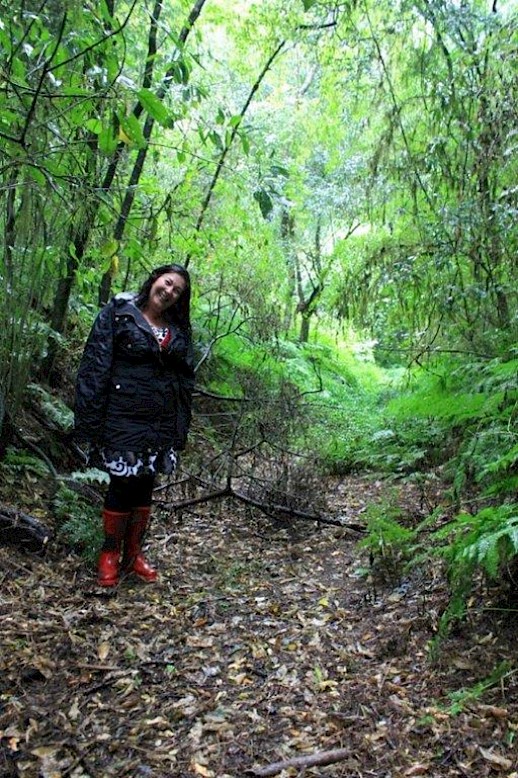From little things big things grow
When a property in the Motueka Valley came up for sale Lisa Hood knew she had found the place that she could pour her passion for nature into.
The property includes a 2.9ha QEII National Trust covenant, protecting one of the most important stands of lowland podocarp forest remaining in the Motueka Valley catchment and sheltering other rare and nationally important species that are poorly represented in the region.
The bush was covenanted by a former owner. The most recent owner spent most of his time overseas and had rented out the property. Without regular follow up, the weed species in the covenant had a chance to get away. Old man’s beard was swamping the trees and pulling them down to the ground. This was reducing the light available for native seedlings to regenerate under the forest canopy. Another weed, Tradescantia (wandering willy), was thriving in the dark dank conditions that the old man’s beard had created and was taking over any available bare soil that seedlings might otherwise have been able to colonise.
For Lisa, restoring the forest is a very personal journey. It helps her feel connected to her late husband, Rowan Payne, who had worked in the Ureweras as a DOC contractor. Being in the bush was a large part of their lives together and restoring the forest on her property is a dedication to him and to the values that they share.
Lisa loves the birds she shares the bush with. She is regularly visited by large flocks of kereru and knows that to keep the birds visiting the forest the forest has to offer native seed and fruit for them to eat. Controlling the old man’s beard encourages the trees to flourish and provide food, and removing the Tradescantia ensures that seedlings get a chance to usher in the next generation of the forest. The kereru also help with that process excreting seeds they have eaten that can go on to germinate on the forest floor.
‘I see this as forever - it is my love, my dream and my vocation. I am playing the long game - this is not a project that has an end,’ Lisa says.
Lisa tried a few weed control approaches on the covenant. She sought advice from the local QEII National Trust Representative, Tom Stein, who helped her to develop a long-term plan to control the pests and restore the forest. Tom also provided her with a starter pack of tools to get her up and running which included a set of secateurs, a handsaw and some herbicide gel. The tools were supplied through a QEII National Trust Weedbusting project funded by the DOC Community Fund.
For Lisa, the key to success was working out the best place to start, staging the work and always following up on the previous season’s work before starting the next stage. The advantage of this approach is that it gives more time for the seeds of native species to germinate by themselves.
Lisa has shared her experience with neighbours, friends and her family. Her infectious enthusiasm has inspired others to spend time in the covenant and she enjoys the different ways people relate to the forest.
She recently met with Chris Rowse from Forest and Bird’s Project DeVine which resulted in the inaugural weeding working bee in mid May involving 19 keen locals from the Motueka Valley and Moutere area. This group is now working out a plan for how to maintain the work they have started and help others tackle environmental weeds. If you would like more information on how to get involved contact the Motueka Valley Association at [Enable JavaScript to view protected content]
